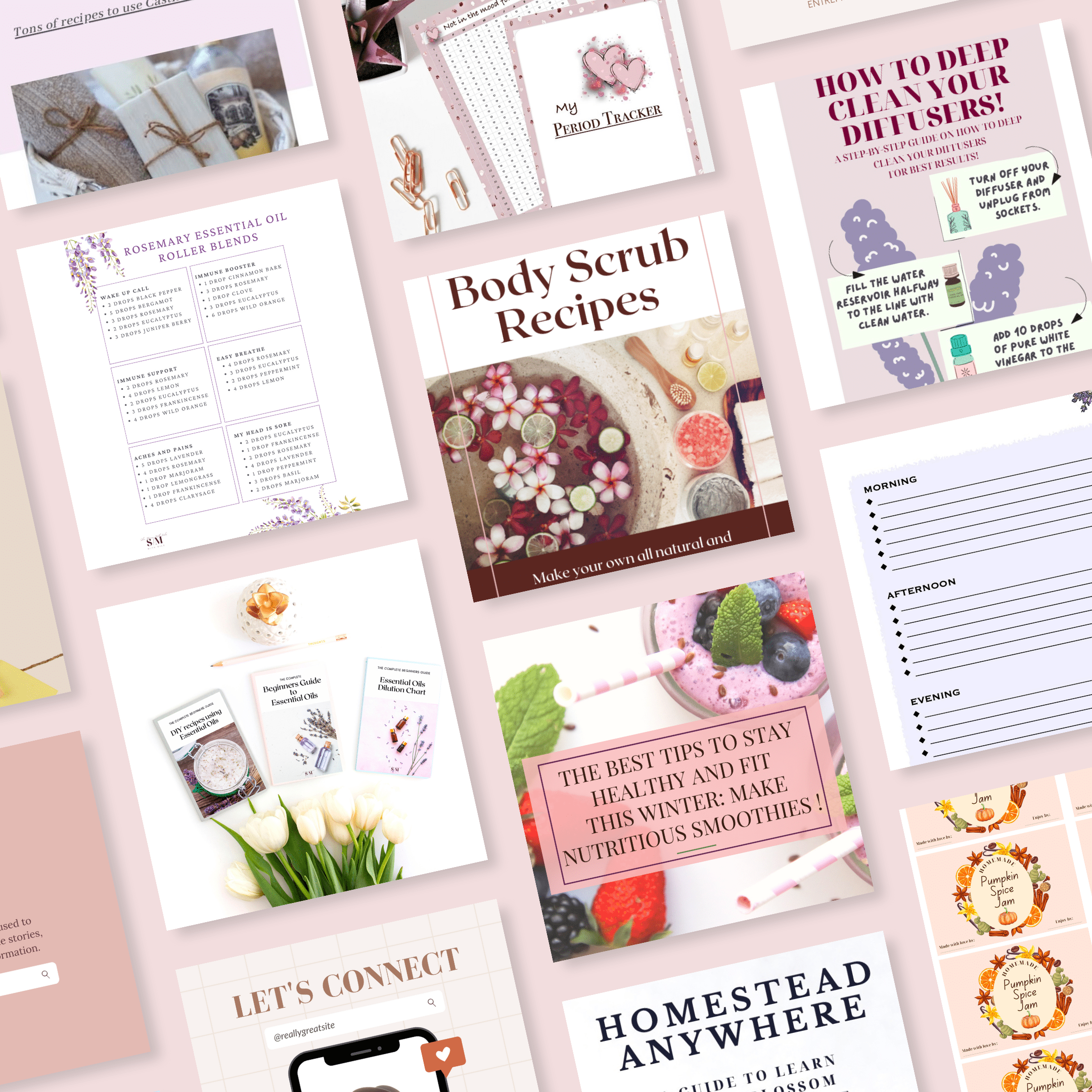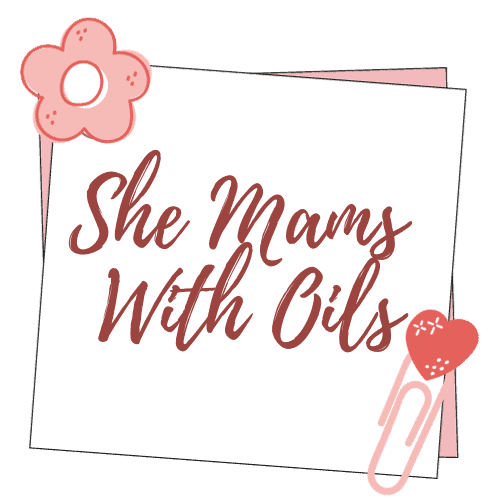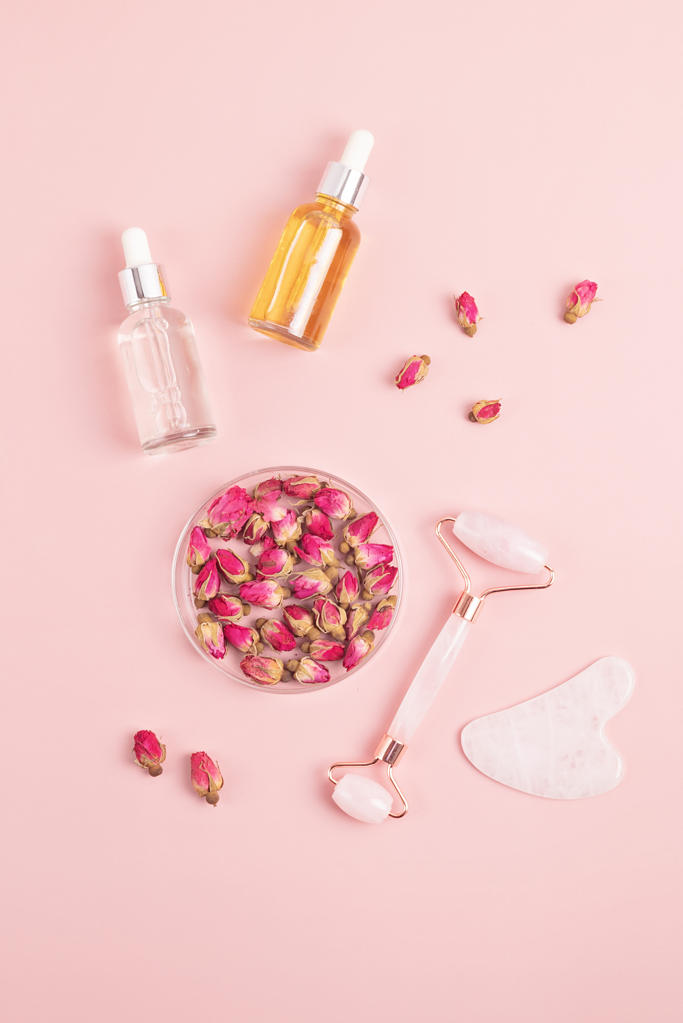THE BEST NATURAL INGREDIENTS FOR OILY ACNE-PRONE SKIN
The best natural ingredients for oily acne-prone skin.
Learn how to use natural ingredients such as:
- Tea tree oil;
- Aloe vera;
- Green tea;
- Neem oil;
- Carrier oils;
- Essential oils;
- Etc.
Learn how to easily incorporate these natural ingredients in your daily skin routine.
It’s easier than you think!
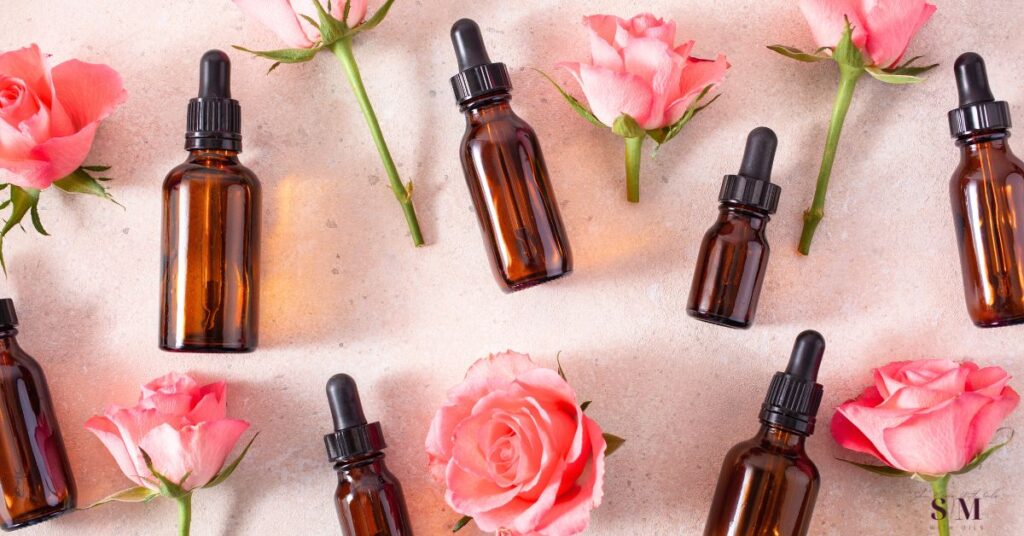
The following post may contain affiliate links, which means I’ll get a small commission if you decide to buy using the links provided. This will add NO EXTRA COST to you but it helps me to keep this blog up and running. Thank you. You can get more info by reading my Disclaimer page.
Unlocking the Power of Nature: The Best Ingredients for Managing Oily Skin and Acne
Acne and oily skin are two of the most common skin concerns that people experience. These issues can be frustrating and difficult to manage, leaving many people feeling self-conscious and uncomfortable in their own skin.
Thankfully, nature has provided us with many powerful ingredients that can help you manage oily skin and acne.
Indeed, by harnessing the power of natural ingredients, you can achieve clear, healthy, and glowing skin without the use of harsh chemicals or synthetic ingredients.
The best natural ingredients for oily acne-prone skin
In this article, I’ll share with you:
- Some of the best natural ingredients for managing oily and acne-prone skin;
- Their benefits;
- How you can incorporate them into your skincare routine for optimal results.
Whether you’re dealing with occasional breakouts or chronic acne, these ingredients can help you unlock the power of nature for clear and radiant skin. Let’s dive in!
IMPORTANT
The content of this blog post is intended for information purposes only. It is not intended to replace professional medical advice.
I am not a doctor and I’m only sharing my personal experience here.
If you are unwell or sick, always ask your trusted doctor or medical practitioner for advice. Pay particular attention if you are allergic or intolerant to any food and/or medication, if you are pregnant or breast-feeding. Children and elderly people should also seek medical attention quickly if unwell or experiencing any symptom.
Even if you don’t experience any symptom, always contact your trusted health provider if in doubt. If you feel unwell and are worried, it is safer to ask for medical advice from a professional than to wait.
Always keep essential oils out of reach of children.
Never risk it!
IMPORTANT
Always read the label carefully before consuming any medication. Never exceed the recommended dose. Ask for the advice of your pharmacist if in doubt, and if you are already taking other prescriptions, if you are allergic to any ingredient, if you are pregnant or breastfeeding.
Moreover, contact your doctor immediately if your symptoms don’t improve or if you get worse.
Understanding oily acne-prone skin
Before we explore the best natural ingredients, it’s crucial to understand what causes oily and blemish-prone skin.
As mentioned here: “Acne is a skin condition that occurs when your hair follicles become plugged with oil and dead skin cells. It causes whiteheads, blackheads or pimples. Acne is most common among teenagers, though it affects people of all ages.”.
In other words, oily skin occurs when the sebaceous glands cause excess oil production, leading to clogged pores, and therefore creating an ideal environment for acne-causing bacteria to thrive.
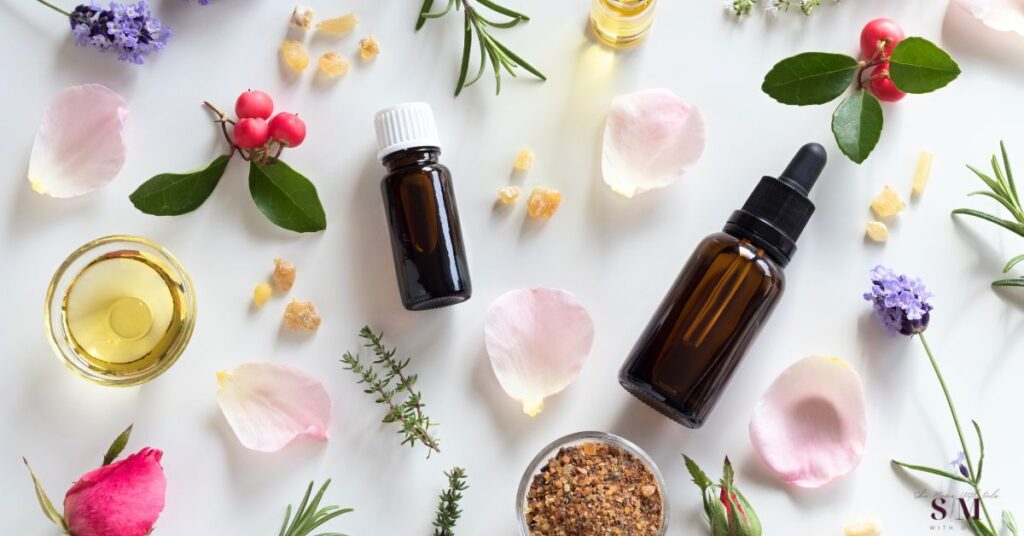
Why natural ingredients are beneficial for oily acne-prone skin
Using natural ingredients for oily skin and acne has many benefits.
- Firstly, natural ingredients are gentle on the skin, making them suitable for all skin types, including sensitive skin. Unlike harsh chemicals, natural ingredients do not strip the skin of its natural oils, which can cause further problems.
- Natural ingredients are also environmentally friendly and sustainable.
- On the contrary, traditional store bought acne treatments often contain harmful chemicals that can pollute the environment and harm wildlife. As a consequence, by opting for natural ingredients, you not only protect your skin but also contribute to a healthier planet.
- Additionally, natural ingredients are often more affordable than synthetic products, making them accessible to everyone. Did you know that most natural ingredients can be found in your kitchen?
- Moreover, natural ingredients are versatile and can be used in various forms, such as masks, toners, and serums, depending on your skin’s needs.
- Unlike traditional acne treatments that contain harsh chemicals, natural ingredients such as essential oils work by targeting the root cause of acne, rather than just treating the symptoms.
- In addition to that, natural ingredients often have fewer side effects.
- Natural ingredients are also rich in vitamins, minerals, and antioxidants that nourish and protect the skin.
Top natural ingredients for oily acne-prone skin: tea tree oil, witch hazel, aloe vera, green tea, jojoba oil, neem oil, and more
I’m sure that, after reading about all the amazing benefits of natural ingredients, you are curious to know what are the best ones for your specific needs.
In the following paragraphs, I’m going to share with you the most common ingredients, and their main benefits!
Understanding your skin type and its specific requirements will guide you in selecting the most suitable natural ingredients for your skincare routine, promoting a healthy and radiant skin.
Choosing the right natural ingredients for your skin type
Choosing the right natural ingredients for your skin type is crucial to ensure effective and beneficial results. Firstly, different skin types have varying needs and concerns, and understanding your skin type is the first step towards finding the most suitable ingredients.
Secondly, different natural ingredients offer unique benefits and properties that cater to various skin concerns.
If you have:
Oily, acne-prone skin
look for ingredients like tea tree oil, witch hazel, and charcoal, which can help regulate oil production and combat acne-causing bacteria.
Sensitive or dry skin
opt for soothing ingredients such as aloe vera and chamomile, which provide gentle hydration and reduce inflammation.
Combination skin
you can benefit from ingredients like green tea and jojoba oil, which balance oil production while hydrating the skin.
Here’s A List Of The Top natural ingredients for oily acne-prone skin
Tea tree oil: a powerful natural ingredient for oily acne-prone skin
I have talked many times before about Tea Tree oil, and its amazing benefits.
Tea tree oil is a potent anti-acne ingredient derived from the leaves of the Melaleuca alternifolia tree, native to Australia. It has natural antibacterial properties that can kill acne-causing bacteria on the skin. Tea tree oil is also an anti-inflammatory agent that reduces redness and inflammation associated with acne.
To use tea tree oil, dilute it with a carrier oil such as jojoba oil or fractionated coconut oil. Apply the mixture to your face using a cotton ball or pad. You can also add a few drops of tea tree oil to your moisturiser or face wash. However, be careful not to overuse tea tree oil as it can cause skin irritation and dryness.
ESSENTIAL OILS DILUTION CHART
YOU CAN GET MY FREE PRINTABLE with a safe dilution chart for essential oils here:
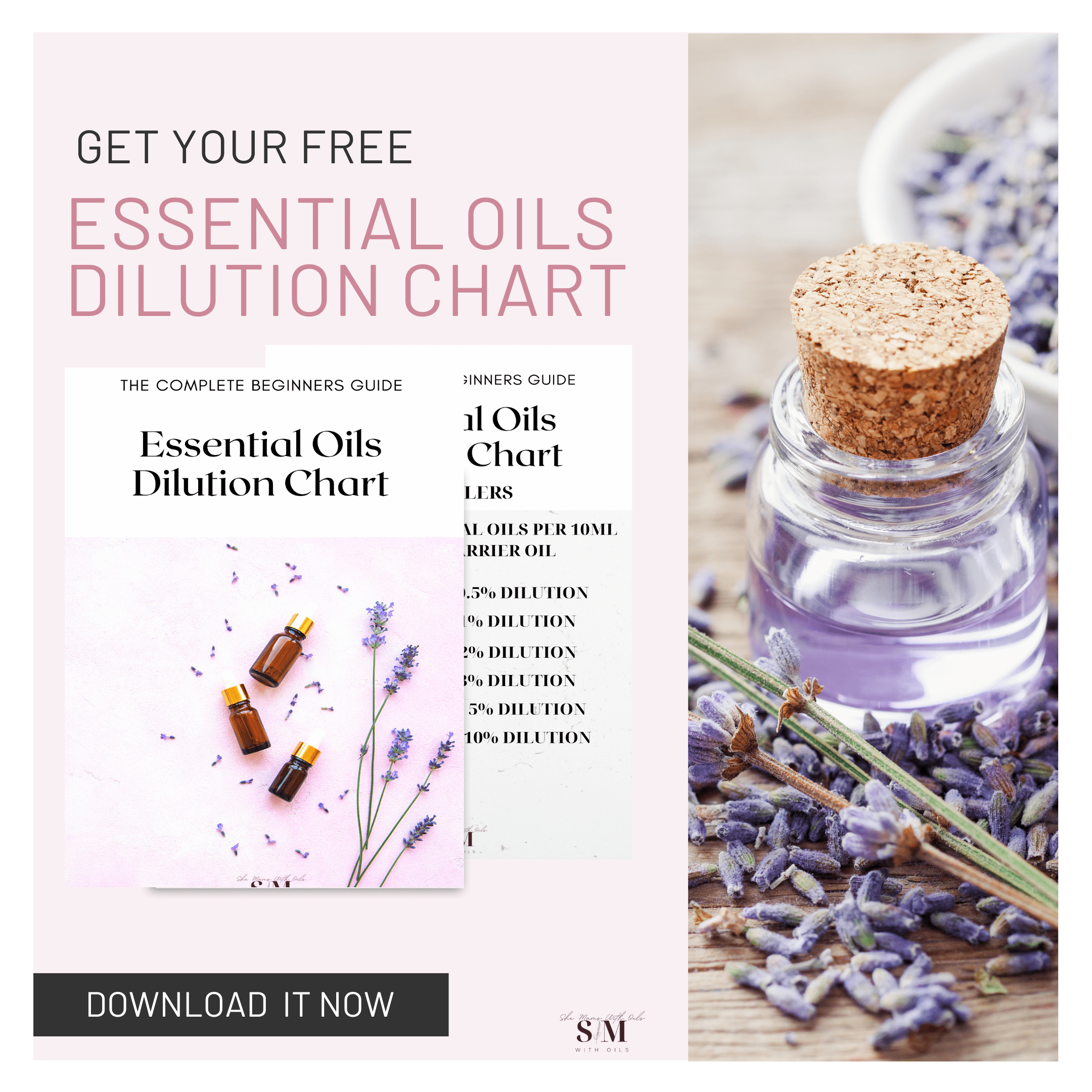
FREE DILUTION CHART FOR BEGINNERS ESSENTIAL OILS USERS.
Witch hazel: a natural astringent that helps control oil production
Witch hazel is a natural astringent derived from the bark and leaves of the witch hazel shrub. It has been used for centuries to treat various skin conditions, including acne. Witch hazel contains tannins that help tighten the skin, minimise the appearance of pores and reduce oil production. It also has anti-inflammatory properties that soothe irritated skin.
Witch hazel also possesses antioxidant properties, protecting the skin from environmental damage.
When using witch hazel, ensure it is alcohol-free to prevent drying out the skin.
To use it, simply apply it to your face using a cotton ball or pad. You can also use it as a toner by mixing it with water or apple cider vinegar.
Witch hazel is safe to use daily, but be careful not to overuse it as it can dry out your skin.
Aloe vera: a soothing and anti-inflammatory ingredient for oily acne-prone skin
Aloe vera is a soothing ingredient derived from the leaves of the aloe vera plant. It has been used for centuries to treat various skin conditions, including acne. Aloe vera contains salicylic acid, which exfoliates the skin and unclogs pores. It also has anti-inflammatory properties that reduce redness and inflammation associated with acne. Therefore, aloe vera gel is an excellent ingredient for calming irritated and acne-prone skin. It helps reduce redness, promotes healing, and provides gentle hydration without clogging the pores.
When buying aloe vera, look for a 100% pure gel or products containing high concentrations of aloe vera.
To use aloe vera, apply the gel directly to your face and leave it on for 10-15 minutes. You can also mix it with other natural ingredients such as honey or tea tree oil to make a mask. Aloe vera is safe to use daily and is suitable for all skin types.
You might also want to check this post to learn how to make “THE ULTIMATE DIY NIGHT CREAM FOR HORMONAL ACNE: A STEP BY STEP GUIDE”.
Charcoal: a detoxifying ingredient that helps draw out impurities and excess oil
Charcoal is a natural detoxifying ingredient that effectively draws out impurities, excess oil, and toxins from the skin. Charcoal-based skincare products, such as cleansers or masks, can effectively unclog pores, reduce blackheads, promote a clearer complexion, and prevent future acne breakouts.
To use charcoal, mix it with water to form a paste. Apply the paste to your face and leave it on for 10-15 minutes. Rinse off with warm water. Charcoal is safe to use once or twice a week and is suitable for all skin types.
Green tea: a natural antioxidant that helps reduce inflammation and redness
Green tea extract is a powerhouse ingredient that offers multiple benefits for oily acne-prone skin.
It is a rich source of antioxidants that protect the skin from damage caused by free radicals. It also has anti-inflammatory and antimicrobial properties that reduce redness and inflammation associated with acne. Green tea contains catechins that help regulate oil production and unclog pores.
To use green tea, steep a tea bag in hot water for 3-5 minutes. Let it cool down and apply the tea to your face using a cotton ball or pad, like you would with a toner. You can also mix green tea with other natural ingredients such as honey or aloe vera to make a mask. Green tea is safe to use daily and is suitable for all skin types.
Jojoba oil: a lightweight and non-comedogenic oil that helps regulate sebum production
Jojoba oil is a non-comedogenic oil derived from the seeds of the jojoba plant. It closely resembles the natural oils produced by the skin, making it an excellent moisturiser for oily acne-prone skin. Jojoba oil also has anti-inflammatory properties that soothe irritated skin. It helps regulate oil production and balances the skin’s pH levels.
To use jojoba oil, apply a few drops to your face and massage gently. You can also mix it with other natural ingredients such as essential oils, tea tree oil or witch hazel to make a moisturizer or toner.
This carrier oil oil is safe to use daily and is suitable for all skin types.
Neem oil: Antimicrobial Properties for Oily Skin
Neem oil is derived from the neem tree and possesses powerful antimicrobial properties. It can help eliminate acne-causing bacteria, reduce redness and soothe inflammation, regulate oil production, and promote a healthier complexion. Neem oil is highly concentrated, so dilute it with a carrier oil before applying it to the skin.
essential oils: unleash the true power of nature!
What can I possibly say about essential oils that you have not heard me say yet? They are simply a marvel in a bottle!
Essential oils can do practically everything, from supporting your mental health to boost your immune system, from adding flavour to your meals, to create DIY cleaning products.
When it comes to make DIY beauty moisturisers, or serum or toners, you can add a few drops of essential oils to enhance the qualities of your ingredients, and achieve great results.
For a list of the best essential oils for acne, you could check this post!
important
Only use 100% unadulterated and pure essential oils, from a reputable company.
Never use essential oils topically unless properly diluted, and only use them after a patch test.
Pay particular attention if you are pregnant, breast-feeding, or on older people and young children.
Some people might develop skin irritations or adverse reactions.
Never ingest essential oils without reading the label first, as not all oils can be consumed internally.
Always talk to your trusted medical practitioner and/or certified aromatherapist before using essential oils, especially if you suffer from any allergy, intolerance, are ill or are already taking any medication.
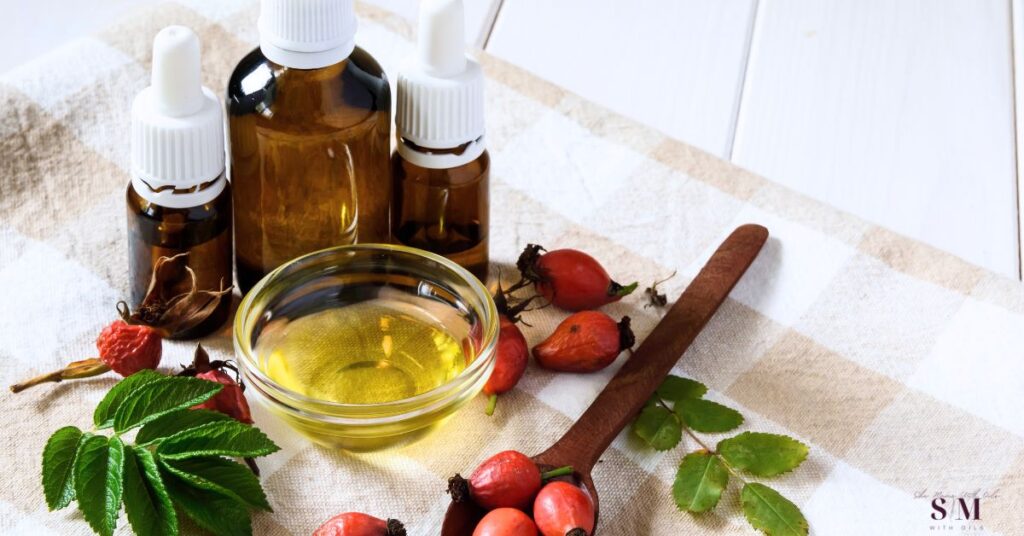
Rosehip Oil: Balancing and Nourishing Benefits for Oily Skin
Rosehip oil is a lightweight, non-greasy oil that provides numerous benefits for oily acne skin. It helps balance oil production, moisturise the skin, and fade acne scars. This oil is also rich in essential fatty acids and vitamins A and C, promoting skin regeneration and brightening the complexion.
Lemon Juice: Natural Exfoliant for Oily Skin
Lemon juice is a natural exfoliant that can help remove dead skin cells, excess oil, and impurities. Its high citric acid content provides gentle exfoliation, promoting a brighter complexion. However, it’s essential to dilute lemon juice with water as it can be too acidic for direct application on the skin. Use a few drops of pure, fresh lemon juice in a little water, and dab your skin with it just like you would with your toner. Follow up with your regular moisturiser.
Apple Cider Vinegar: Restoring pH Balance for Acne-Prone Skin
Apple cider vinegar is a versatile ingredient that can restore the skin’s natural pH balance. It has antimicrobial properties, helping to combat acne-causing bacteria, and can also act as a natural toner. To use, in a glass bottle add half part apple cider vinegar, and half part witch hazel. Shake well and place a few drops on a cotton pad. Tone your face with this mix, and follow up with a moisturiser.
Clay Masks: Absorbing Excess Oil and Purifying the Skin
Clay masks (such as bentonite), are excellent additions to a skincare routine for oily acne-prone skin. They absorb excess oil, unclog pores, and draw out impurities.
You can use a clay mask once or twice a week to detoxify and clarify the skin.
IMPORTANT
Always follow the advice of your trusted health practitioner before using any product around your home.
Although the natural ingredients used in the recipes below are generally safe, always consult with your doctor before using any product. Pay particular attention if you suffer from any condition, allergy or if you are pregnant or breastfeeding.
Seek immediate advice and help from your trusted medical care provider if you are concerned about your health or that of your family members or pets.
For example
While essential oils and natural ingredients are generally safe for pets, some animals might be sensitive to some ingredients, or might develop an allergic reaction. Immediately stop any treatment if you notice any reaction, such as a skin irritation on your dog. Seek immediate help from your local vet if you are concerned about your pet’s health at any stage.
The same advice applies to you and the rest of your family.
How to use natural ingredients for oily, acne-prone skin
If you are wondering how to incorporate natural ingredients into your skincare routine, well, let me tell you: adding natural ingredients into your skincare routine is easy and can be done in a variety of ways.
One of the easiest ways to incorporate natural ingredients is to look for skincare products that contain these ingredients as active ingredients. Many skincare brands now offer natural and organic products that are gentle and effective for managing oily skin and acne.
Another way to incorporate natural ingredients is to create your own skincare products using natural ingredients. This can be a fun and cost-effective way to manage oily skin and acne.
Here on my blog, I have tons of DIY Recipes to suit your taste and needs. Make sure to check them!
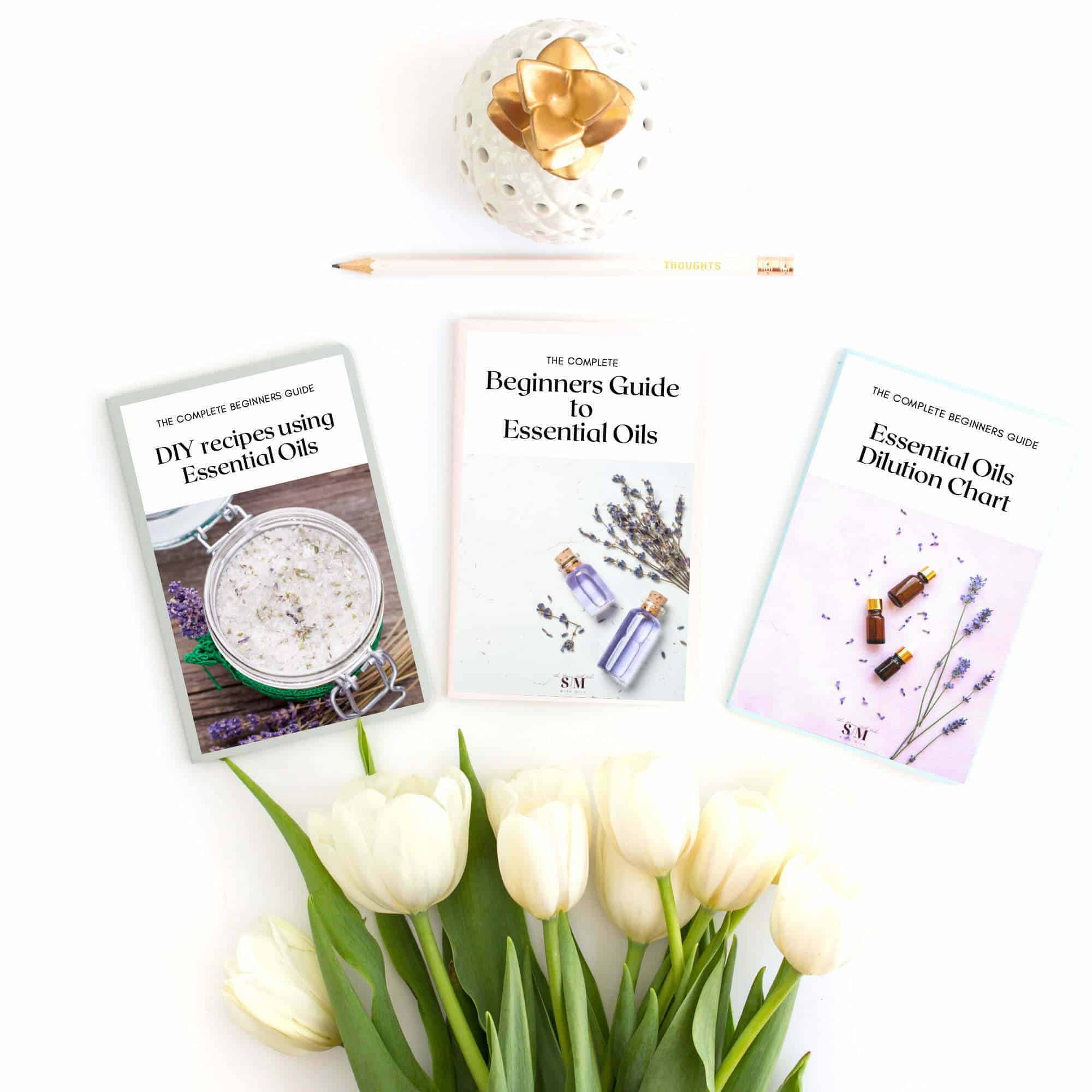
GET THE COMPLETE BEGINNERS GUIDE TO ESSENTIAL OILS!
Are you curious about what Essential Oils are, and what they can do for you and your family?
Did you know that EO have been used for centuries to help support our health and wellbeing?
If you want to learn more, I have created the perfect complete guide to beginners EO users. You can get it on my Etsy shop at a special introductory price.
Here are some tips to get you started:
- Cleansing: Look for cleansers that contain natural ingredients like tea tree oil, witch hazel, or aloe vera. These ingredients help cleanse the skin, control oil production, and fight acne-causing bacteria.
- Toning: After cleansing, use a toner infused with witch hazel, apple cider vinegar, or green tea to further remove impurities, tighten the pores, and balance the skin’s pH levels.
- Moisturizing: Choose lightweight, non-comedogenic moisturisers that contain ingredients such as aloe vera or jojoba oil. These ingredients provide hydration without clogging the pores.
- Spot treatments: Apply tea tree oil or diluted neem oil directly to active breakouts to help reduce inflammation and promote healing.
- Face masks: Treat yourself to weekly face masks that feature ingredients like charcoal or green tea. These masks help detoxify the skin, absorb excess oil, and promote a clearer complexion.
Tips for incorporating natural ingredients into your skincare routine
Starting from scratch is always daunting I know.
I hope that the following tips will make you feel a bit better about starting on a new path to a more natural skin care routine and sustainable lifestyle.
- When incorporating natural ingredients into your skincare routine, it’s essential to start slowly and patch test first. Some natural ingredients can cause skin irritation or allergic reactions, so it’s essential to know how your skin will react. Start by introducing one new ingredient at a time to assess its compatibility with your skin.
- Always use high-quality, pure, and organic ingredients to ensure the best results, and minimise adverse reactions.
- Be patient and consistent with your skincare routine. Natural ingredients take time to work, and you may not see results overnight. It’s essential to give your skin time to adjust to the new ingredients and to stick to your routine.
- Lastly, remember to keep it simple. You don’t need a complicated skincare routine to achieve clear and healthy skin. Start with a gentle cleanser, toner, and moisturiser, and incorporate natural ingredients as needed.
DIY skincare recipes for oily acne-prone skin using natural ingredients
DIY ALL NATURAL SKIN CARE AND BEAUTY RECIPES
If you are looking for inspiration for some DIY beauty products with natural ingredients, make sure to check the following posts:
Natural ingredient supplements for oily, acne-prone skin: vitamins A and E, zinc, omega-3 fatty acids
In addition to topical applications, incorporating certain natural ingredient supplements into your diet can also benefit oily, acne-prone skin.
Consider adding the following to your daily routine:
- Vitamins A and E: These vitamins help promote healthy skin and support the healing process. They can be found in foods like carrots, spinach, almonds, and avocados.
- Zinc: Zinc plays a crucial role in regulating sebum production and reducing inflammation. Foods rich in zinc include pumpkin seeds, legumes, and whole grains.
- Omega-3 Fatty Acids: Found in fatty fish like salmon and mackerel, as well as chia seeds and walnuts, omega-3 fatty acids help reduce inflammation and promote skin health.
Common mistakes to avoid when using natural ingredients
Making mistakes when starting something new, and learning a new skill, are pretty normal. That’s how we learn, right?
Let’s have look at some of the most common ones:
- Using undiluted essential oils directly on the skin: Essential oils are highly concentrated and can cause irritation or allergies when used undiluted. Always dilute them with a carrier oil before application.
- Overusing or combining too many active ingredients: It’s important to strike a balance and not overwhelm your skin with multiple potent ingredients. Introduce them gradually (best, one at the time) and give your skin time to adjust.
- Neglecting sunscreen: Regardless of your skincare routine, always protect your skin from harmful UV rays by using sunscreen with at least SPF 30.
Precautions when using natural ingredients for oily, acne-prone skin
Furthermore, it’s essential to keep the following precautions in mind:
- Some natural ingredients may cause allergic reactions in certain people. Always perform a patch test and discontinue use if any adverse reactions occur.
- If you have any pre-existing skin conditions or are using prescribed medications, consult with a dermatologist before incorporating new ingredients into your routine.
- Remember that natural ingredients are not a substitute for professional medical advice. If you’re experiencing severe acne or skin issues, it’s best to seek guidance from a dermatologist.
Lifestyle Tips for Oily Acne-Prone Skin
Sometimes, acne is the result of underlying factors, such as hormonal imbalance, food intolerances or stress.
This is why it is very important to always consult with a trusted medical practitioner in order to establish the cause of your outbreaks, and learn how to prevent them and how to manage them effectively.
In any case, as a general rule, you could follow this advice:
- Make sure to properly cleanse your skin, using gentle products, free from harsh chemicals. Pay particular attention in the evening, and make sure to remove all make up and get rid of all impurities accumulated during the day.
- Follow a balanced diet, and avoid excessive consumption of caffeine, alcohol, and fatty foods.
- Try to spend as much time as possible outdoors, and be active.
- Keep yourself well hydrated thorough the day;
- Manage stress;
- Make sure to get enough sleep every night.
All of the above are important factors when dealing with persistent acne.
Remember that you will get better and faster results if you treat the issue with an holistic approach. There is not one solution that will work on its own!
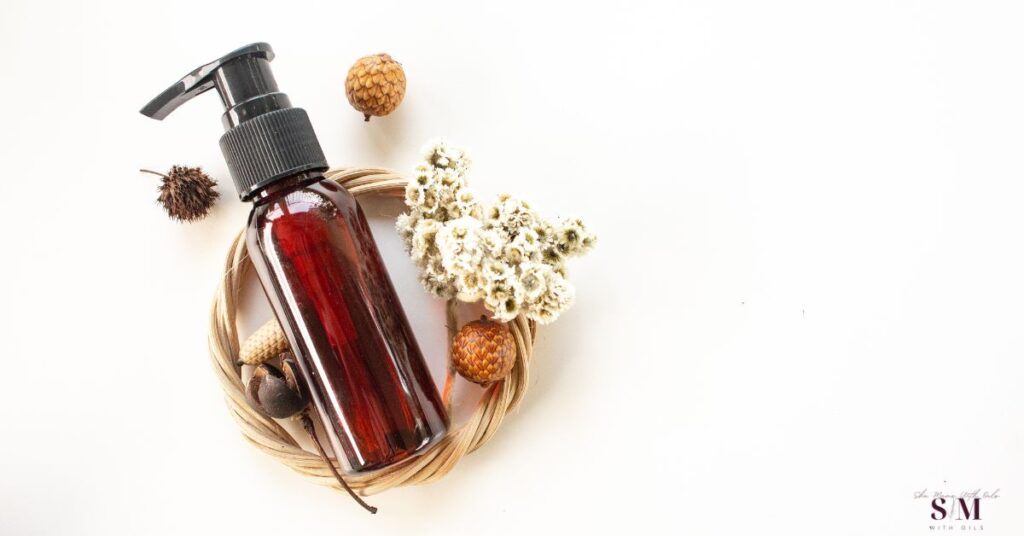
The best natural ingredients for oily, acne-prone skin: Conclusions
Dear friend, Nature has provided us with some amazing ingredients that are not only effective in treating oily acne-prone skin, but also gentle and safe to use. From tea tree oil to witch hazel and aloe vera, these natural ingredients have been used for centuries to combat blemishes and soothe irritated skin.
I hope you will find this article helpful.
Make sure to leave a comment in the section below, and share your experience. I’d love to hear from you.
Till next time, Dee.
IMPORTANT
When using Essential Oils, make sure to use only CPTG Certified, Pure, Tested Grade ones, like Doterra Essential Oils. The content of this blog post and any information provided here has not been evaluated by the FDA (Food and Drug Administration), any government entity or medical practitioner. It is NOT intended to diagnose, treat, cure or prevent any disease, illness or condition. It is NOT intended to be a substitute for medical counselling. If you are pregnant, breastfeeding, or suffering from any medical condition or illness or injury, you SHOULD consult a qualified healthcare professional before using any product.
Hi, I’m Dee!
Mom of three; printables creator, natural solutions, simple living and homemade food enthusiast; “Outlander” fanatic.
When I’m not busy writing and designing, you can always find me covered in a cloud of flour in the kitchen, playing and crafting with my children, or making up some blends with my Essential Oils. Also I’m practically obsessed with Crystals and reading during my spare time.
Come along on our crazy journey as a family living in the countryside of Ireland!
